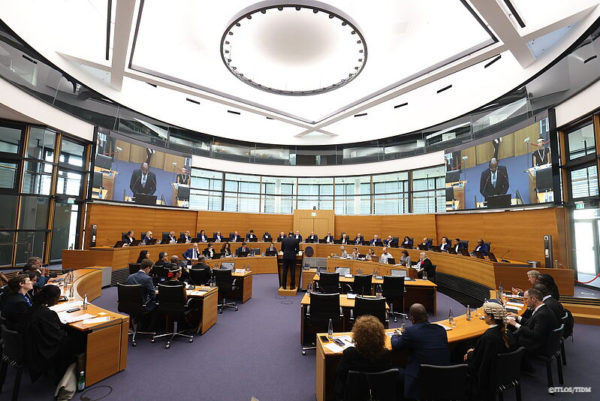The International Tribunal for the Law of the Sea delivers a landmark opinion on climate obligations of States Parties to the United Nations Convention on the Law of the Sea
Reading time : 3 minutes
On 21st of May, 2024, the Commission of Small Island States on Climate Change and International Law (COSIS) requested the International Tribunal for the Law of the Sea (ITLOS) to issue an advisory opinion on the climate obligations of States Parties under the United Nations Convention on the Law of the Sea, or Montego Bay Convention. ITLOS is an independent judicial body set up to settle questions of interpretation and application of the Montego Bay Convention. According to ITLOS, States Parties have a high standard of care obligation ‘to take all necessary measures to prevent, reduce and control marine pollution from anthropogenic GHG emissions’, an obligation that may ‘call for measures to restore marine habitats and ecosystems’.
The questions submitted for the Court’s opinion
COSIS submitted two questions to ITLOS. The first one concerned the specific obligations of States Parties to the Montego Bay Convention to prevent, reduce and control pollution of the marine environment in view of the adverse effects that climate change is having or may have. The second one related to the possible obligations to protect and preserve the marine environment in the face of the impacts of climate change.
These questions highlighted several consequences of climate change on the oceans, such as warming waters, rising sea levels, ocean acidification and the combined effects of warming and rising sea levels.
The answers provided by the Tribunal
The links between GHG emissions and marine pollution
For the Tribunal, human emissions of greenhouse gases (GHGs) into the atmosphere constitute pollution of the marine environment within the meaning of the Convention.
The Tribunal refers to the latest IPCC report, which States, among other things, that ‘[i]ncreasing frequency of marine
heatwaves will increase risks of biodiversity loss in the oceans, including from mass
mortality events’.
The integration of climate change obligations
The Tribunal stresses that it is possible to refer to ‘any relevant rules of international law applicable’. In this regard, it points to Article 194(1) of the Montego Bay Convention, which imposes an obligation on States to ‘protect and preserve the marine environment’. The Tribunal also assesses that this article shares a common objective with the Paris Agreement: the reduction of pollution.
State obligations
The obligation under the Convention to take all necessary measures to prevent, reduce and control marine pollution resulting from anthropogenic GHG emissions is an ‘obligation of due diligence’, an obligation that may ‘call for measures to restore marine habitats and ecosystems’. According to the Tribunal, the ‘standard of diligence required is stringent, given the high risks of serious and irreversible harm to the marine environment from climate change impacts and ocean acidification’ and States must ‘endeavour to harmonize their policies’ in this regard. This is an obligation of due diligence. The Tribunal states that ‘the level of diligence required is high, given the acute risks of serious and irreversible harm to the marine environment posed by those emissions. However, the implementation of the due diligence obligation may vary according to States’ capacities and available resources’.
Finally, States Parties also have a specific obligation to take all necessary measures to ensure that anthropogenic GHG emissions under their jurisdiction or control do not cause pollution damage to other States and their environment.
Conclusion
This opinion marks a turning point in the fight against climate change in international law, by affirming that a State may be held liable by the Tribunal for insufficient measures to prevent and protect against activities that emit greenhouse gases (GHGs) and contribute to marine pollution.
However, this opinion is not the only one expected on the obligations of States with regards to climate change in international law. The International Court of Justice (ICJ) is due to issue an opinion on the climate responsibilities of States in the near future. In addition, in January 2023, Chile and Colombia appealed to the Inter-American Court of Human Rights to clarify the scope of States’ obligations in the face of the climate emergency under international human rights law.
